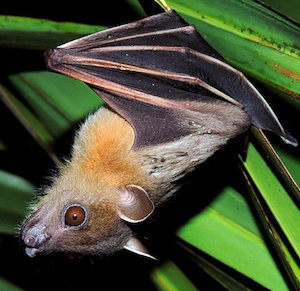― Abraham Lincoln
200 years later, we can say that Marx was very often right – ...
MOSCOW — VLK aka Vladimir Vladimirovich Putin took the oath of office on Monday for a fourth term as Russia's president, in a ceremony staged i
A TALE OF TWO CITIES: How Russia Lost WWII
A TALE OF TWO CITIES: How Russia Lost WWII
This week, Russia will spend millions of dollars to put up yet another WWII victory parade in the Red Square. Tanks will rumble and jets will fly overhead. Nuclear-capable ballistic missiles will slowly crawl past the same old mausoleum with the same old corpse inside. But what about the people watching? Some are clinging to old glory. Many are beginning to see the absurdity of celebrating in superpower style victory over countries that are now vastly more prosperous than their own. Russia is a poor country that does not even have the technological and business expertise to exploit its own natural resources, letting foreign powers do it instead, akin to the literal banana republics of early 20th century Central America. Russia has roughly half the population it had a hundred years ago and in many metrics such as consumer goods production has yet to reach pre-revolutionary levels or levels that were achieved by Stalin’s GULAG slave labor in the 1930’s. In all ways that count, Russia is the sole loser of the Second World War.
Beer is much more than just a drink | Pete Brown | Opinion ...
The year 2017 has been a bumper year for social media firestorms, with some of the world's biggest brands demonstrating the importance of comprehensive and adaptable social media policies in responding to crisis online. However, social media risks for business aren't just reputational, but regulatory as well.
In 2017, both the Australian Competition and Consumer Commission (ACCC) and the Australian Association of National Advertisers (AANA) have taken steps to emphasise that social media advertising is just that: advertising. The ACCC's reminder to businesses came in the form of new social media guidelines for businesses. The AANA, meanwhile, updated its Code of Ethics2 in March to include provisions aimed at increasing transparency when it comes to brands making use of social media influencers.3 As the regulators are concerned, businesses have the same responsibilities on social media as they do in all other marketing channels in relation to advertising ethics and the consumer law.
AANA, 2017 Clearly distinguishable advertising: best practice guideline
Media Use Disinformation To Accuse Russia Of Spreading Such Moon of Alabama
Five Ways Bosses Fight Labor JacobinTax Cuts Still Don’t Seem to Be Helping WorkersBloomberg (UserFriendly)Is the Great Recession Still Holding Down Wages? (Wonkish) NYT. UserFriendly: “Krugman gets something half right. They don’t want to raise wages because the demand still isn’t there because the working class is still in a balance sheet recession.“Black Unemployment Is at an All-Time Low, But …Bloomberg (UserFriendly)Three Sectors Explain Most of Deceleration in U.S. Wage Growth Bloomberg (UserFriendly)How Criminals Steal $37 Billion a Year from America’s Elderly Bloomberg. JTMcPhee: “Disgruntled Millenials and Gen X’ers freeing up old folks’ capital, eh?”
YOU CAN’T MAKE THIS STUFF UP: Well, you could, but who’d believe you.
After pouring whisky over the statuette, the revelers perch a wide-brimmed hat atop its head and parade it up the street as a band plays a rowdy tune.This is the festival of Jesus Malverde, considered the patron saint of drug traffickers, held every year in the Mexican city of Culiacan.Culiacan is the capital of Sinaloa state, home base to one of the country’s most powerful drug cartels.It is also home to a chapel devoted to Malverde, a folk hero who legend has it stole from the rich to give to the poor in early 20th century Sinaloa.

The week in Facebook
Mark
Zuckerberg is out of Congressional hearings — but it was still a busy week
for the Facebook CEO.
This
Wired writer is not impressed by Facebook’s
testimony before British MPs. But Zuckerberg has another chance — he’s been
summoned. “Fake
news” warnings shrink the content on your News Feed. Here’s
a look at Facebook’s new “something happened” ad
campaign. At F8, the platform’s annual developers’ conference, Zuckerberg spoke
about the fact-checking partnership. Speaking of which, debunking site
Teyit.org found that the reach of their fact checks are
often surpassed by the fakes themselves, and called on Facebook to expand
it to Turkey.
In
non-fact-checking related news, Facebook also
launched a dating feature. What will next week bring?

(Shutterstock)
Research you can use
- MIT Media Lab research identifies an increase in the spread of misinformation but says we’re unfairly blaming bots.
- The founders of Hoaxy, an online platform that helps enable the study of misinformation, have published research on the “anatomy” of online misinformation networks and how they can be disrupted.
- Datacommons.org is a new initiative to share important data about the web. The first dataset provides metadata related to some ClaimReview-annotated fact checks.
This is how we do it
- A new fact-checking project in Sweden is borrowing a familiar strategy from Norway: distributing fact checks on each media partner’s website.
- And the winner is: a tool called VeriPixel, a “photo verification solution to restore trust in news images.” It won the 2018 RJI Student Competition.
- In this tip sheet from International Fact-Checking Day, learn nine ways to help fact-checkers verify information during a crisis.
This is bad
- Who needs deepfakes when you have video games? YouTube tutorials have become a primary source for several fake war videos.
- Meet Salah Salem Saleh Sulaiman, the first person sent to jail for violating a fake news law in Malaysia.
- Bots and trolls are just part of everyday life in Mexico’s elections.
A closer look
- Last week the European Union released its first major action against fake news. Here’s what it does and doesn’t include.
- The world’s fifth most-popular website doesn’t have thousands of employees, Quartz reminds us. And here’s NPR’s interview with Wikipedia founder Jimmy Wales, who says internet users “are adrift in the fake news era.”
- BuzzFeed interviews a former Tea Partier is teaching “smart and sensitive” people how to spot fake news.
 (Shutterstock)
(Shutterstock)If you read one more thing
The
IFCN’s Alexios
Mantzarlis writes about why we need to address the internet’s woes in
buckets or be perpetually disappointed.
15 quick fact-checking links
- South African media’s interest in fact-checking has sharply increased in the past five years, according to this study commissioned by Africa Check.
- A new study published by two undergraduates at Colorado State University-Pueblo found that your ability to distinguish between fake news and satire depends on who you are.
- As fact checks become increasingly powerful signals on social media, these projects are trying to check them.
- Even academic reports on transportation infrastructure are using the terms “fake news” and “post-truth.”
- TheJournal.ie Fact Check became Facebook’s latest fact-checking partner, ahead of Ireland’s referendum on abortion.
- Try this at home (if you live in Michigan): The Michigan Truth Tour.
- “Fake news,” the Nigerian president and the s***hole comment.
- How Facebook’s fake news problem is affecting the future of Mic.
- Esquire has a list of President Trump’s top 5 lies, out of 3,001.
- ICFJ has extended the application deadline for its new fellowship program. Read more here. Apply here.
- Kanye West gets fact-checked.
- Here’s an update on Verificado 2018, a collaborative election fact-checking initiative.
- BuzzFeed News reports on why real people are turning their Instagram accounts into bots.
- Russia has called on United Nations member states to set up a joint mechanism for combating fake news.
- The Times of India debunked a viral photoshopped image of one of its headlines.
